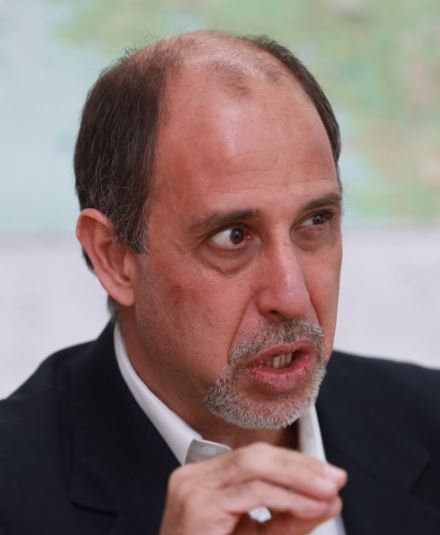UN special rapporteur voices concern over sanctions' impact on N. Korean livelihoods
By YonhapPublished : Dec. 14, 2017 - 15:55
United Nations Special Rapporteur on North Korea's human rights situation, Tomas Ojea Quintana, said Thursday that UN Security Council sanctions cannot be imposed in a way that compromises the livelihoods of people in the targeted countries, including North Korea.
"I believe that any sanctions regime, whatever goal it has, cannot compromise the economy of a country to the extent that it (would) compromise the livelihood of the people," the special envoy said in an interview with Yonhap News Agency.
He voiced concerns that current UNSC sanctions may have a detrimental impact on the livelihoods of ordinary North Koreans. Gaps in the North Korean banking system or difficulties in procurement, as testified by UN assistance agency workers in North Korea, are some of the examples the special rapporteur noted.
"I cannot be more specific because ... I do not have access (to North Korea). But I believe there's serious issues that need to be looked into," Quintana said.

"Let me recall. The Commission of Inquiry report says (it) does not support sanctions that are meant to compromise the economy of a country. So you have something which opposes (the) goal of (the) sanctions regime," he noted.
To that end, the special rapporteur said he will make a request to the Security Council to issue a comprehensive assessment of the sanctions' negative impact on the lives of North Koreans.
"The Security Council should do a comprehensive assessment on all areas of (the) economy in the Democratic People's Republic of Korea or (the) social life of people in DPRK and to what extend (the sanctions regime) is having a detrimental impact," he said. "It is their responsibility (to) the Security Council to do that." The Democratic People's Republic of Korea, or DPRK, is the official name for North Korea.
"I do not, in principle, opposes sanctions. (The UNSC) has legitimacy to impose sanctions. I will never question the legitimacy. (But) my role is to raise concerns in this respect. What I really believe is that we should not allow, as human beings and part of the global village, that the solution of the Korea Peninsula is a solution other than a solution that does not entail a war."
He also called on North Korea to provide verifiable information about how the sanctions are impacting the country.
"DPRK has to get access to relevant UN offices to verify this. It is an opportunity finally for DPRK to open the country to grant access to these people so that we will be able to say, 'Yes, the impact of the sanctions are negative,'" he said.
During his latest visit to Seoul, Quintana also met with foreign affairs officials and raised concerns about the release of information on the medical condition of a North Korean soldier who defected to South Korea over the inter-Korean border last month. The soldier was taken to a hospital in South Korea after receiving several gunshot wounds from the North Korean military in the process of defection. His poor nutritional condition and the existence of parasites in his organs were subsequently exposed to the media.
"I expressed my concern about the exposition of some of the surgery procedures, which constitutes an invasion of privacy of the body and the physical cares of this person. I encouraged the South Korean government to avoid this kind of behavior in the future. The South Korean government has been receptive," Quintana said. He added that he is pushing to personally meet with the soldier in his next visit to Seoul. (Yonhap)



![[Herald Interview] 'Amid aging population, Korea to invite more young professionals from overseas'](http://res.heraldm.com/phpwas/restmb_idxmake.php?idx=644&simg=/content/image/2024/04/24/20240424050844_0.jpg&u=20240424200058)













![[KH Explains] Korean shipbuilding stocks rally: Real growth or bubble?](http://res.heraldm.com/phpwas/restmb_idxmake.php?idx=652&simg=/content/image/2024/04/25/20240425050656_0.jpg&u=)

